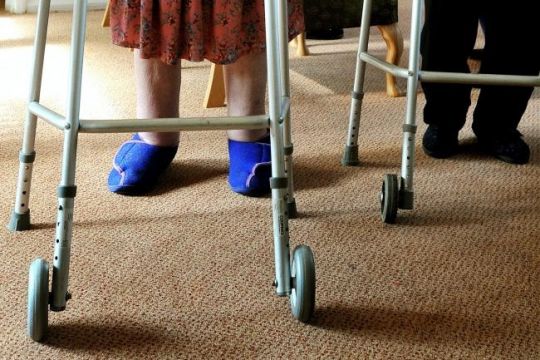The fall-out from a disputed comment by a care worker to a 92-year-old resident that she should "do it in the bed” in response to the resident's toilet request has cost a Donegal care home operator €14,377.
This follows Workplace Relations Commission (WRC) Adjudicator, Shay Henry finding that care worker, Teresa Bradley was unfairly dismissed by the operator, Drumhill Inn Ltd, of a south Donegal care home, Aras Mhic Suibhne in July 2019.
Mr Henry has ordered the care home operator to pay Ms Bradley €13,350 compensation for her unfair dismissal and an additional €1,027 for non-payment of her notice.
In his findings, Mr Henry found that based on the lack of appropriate procedures afforded to Ms Bradley: “I conclude that the resignation given (by her) was effectively under duress,” adding that Ms Bradley was constructively dismissed on July 22nd, 2019 under the Unfair Dismissals Act.
A qualified support worker and care assistant, Ms Bradley was employed by Aras Mhic Suibhne from October 8th, 2012 and successfully sued for unfair dismissal in the case.
The nursing home operator stated that on July 20th, 2019, an elderly client (92) and fully compos mentis, was located in a unit where Ms Bradley was working on her night-shift.
The care operator stated that at around 2am, the resident had been assisted to the toilet.
Upon returning to bed, the resident felt she needed to go to the toilet again and subsequently rang the bell for assistance. The nursing home operator states Ms Bradley then came into the room and the resident explained she needed to go to the toilet again.
The resident alleged that Ms Bradley replied that she should "do it in the bed" and further alleged that Ms Bradley then remarked: "Do you think that you are the only one here, there are 48 residents and you are number 47.”
The care home alleged that as a result of the incident, the elderly resident was very upset, frightened and her daughter was subsequently contacted.
Meeting
The care home operator stated that at a subsequent meeting with family members, Ms Bradley admitted the incident took place, as described by the resident after an initial denial.
In his report, Mr Henry noted Ms Bradley denies admitting to the allegations.
In his findings, Mr Henry stated evidence was given that Ms Bradley’s resignation was offered after she was told Gardaí and the Health Information and Quality Authority (Hiqa) would be involved.
Mr Henry said: “It is difficult to see what the purpose of telling the complainant this was, other than to push for a resignation.”
Mr Henry also noted Ms Bradley had no opportunity to take advice before confirming her resignation. He added it was clear from the evidence that the care home operator’s representatives “saw no distinction between the investigations and the disciplinary procedure”.
The WRC Adjudicator stated that in such circumstances, Ms Bradley was entitled to the protections afforded in the disciplinary procedure, including being informed of the precise nature of the allegation in advance of the meeting and adequate time to prepare for the meeting.
Mr Henry stated: “Lack of opportunity to prepare meant in effect the resignation was given without knowledge of the full resources available to her under the disciplinary procedure.”
'Valid resignation'
At hearing, it was submitted on behalf of Ms Bradley that shortly after the meeting with the resident’s family members that Ms Bradley was taken to the manager’s office where she was presented with a sheet of paper and told to commence writing. Ms Bradley was compelled by the nursing home operator to complete and sign a document which the care home alleged constituted a valid resignation.
Solicitors for Ms Bradley, Canny Corbett Solicitors submitted that, as a principle of law, where the purported resignation of an employee is caused by duress, “this does not amount to a resignation but to a dismissal and/or constructive dismissal”.
The solicitors argued: “Therefore a valid resignation of the complainant did not occur.”
The solicitors stated that even when the complaint was against Ms Bradley was made out, summary dismissal was not reasonable.

The solicitors added no proper investigation of the alleged complaint was carried out and that no separate processes of investigation and disciplinary meeting(s) were carried out by different individuals.
The care home operator argued that Ms Bradley cannot be unfairly dismissed where no dismissal took place and where she voluntarily resigned her position.
The nursing home operator stated that at no time did it deny Ms Bradley the right to representation.
The care home operator claimed Ms Bradley “voluntarily and without hesitation, verbally resigned her position and wrote and signed a letter to this effect”.







